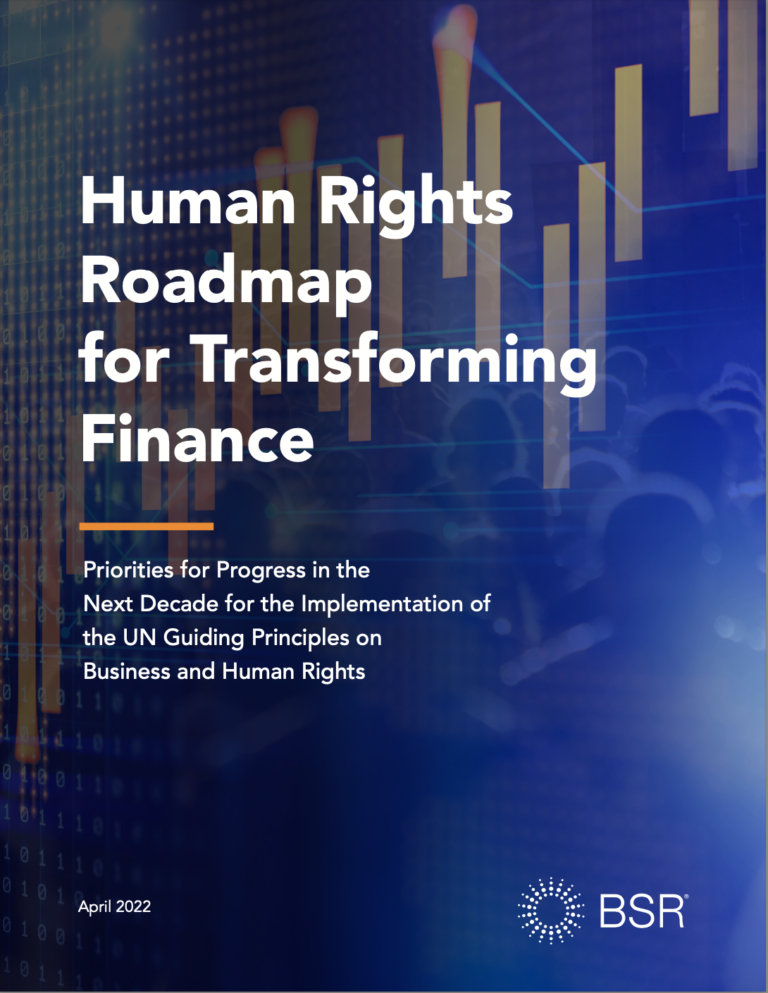The financial services industry—from asset owners and managers to private equity, venture capital, and banks—has a catalytic effect on the behavior of business and the economy. Its vast range of financial products, services, and client relationships ripples through every industry, value chain, and transaction.
With this backdrop, the industry has enormous potential to create a global economy that puts people’s lives and the health of the planet at the center, while contributing to the realization of the United Nations UN Sustainable Development Goals. Yet efforts to do so must be grounded in an evolved approach to doing business—one that respects human rights, in line with the UN Guiding Principles on Business and Human Rights (UNGPs).
In the “Human Rights Roadmap for Transforming Finance” report, BSR provides an overview of key areas where the industry must make progress to tackle global challenges and contribute to new financial systems that respect human rights. We highlight the materiality of human rights for financial institutions (FIs) and explain that adopting a human rights approach to finance can strengthen the impact of traditional environmental, social, and governance (ESG) practices. In particular, the report elaborates on the call to action set out in the UNGPs 10+ Roadmap for the next decade of business and human rights for FIs—from adapting core business and driving respect for human rights in financial markets to engaging with people affected by FI value chains and ensuring that victims of harm have access to remedy. The report concludes with next steps for transforming finance.

